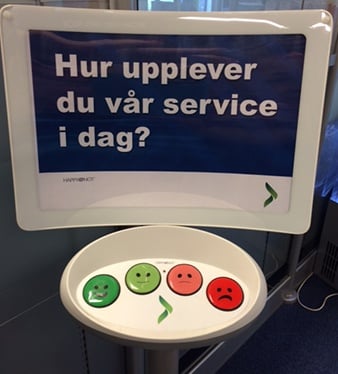It's a sad truth that if people use social media to talk about companies, quite often it's more to complain than compliment. We can all agree that no one likes to see the negative, but in the real world not everything is perfect. Your staff is going to have an off day and make mistakes or be in a less than chipper mood. Or perhaps they misunderstood what the customer was asking, responded incorrectly, and the customer got upset, and it all went downhill from there.
Stuff happens. To all of us.
Social media sites make it so much simpler to vent your frustrations, especially if other attempts at solving the issue have resulted in nothing. It's as though it's your last-ditch attempt to “right the wrong.” Reviews and comments are things that have to be handled very carefully because all reviews are NOT going to be great because if they were all great, they'd be testimonials—not reviews.
The Difference Between Testimonials and Reviews
Reviews:
Reviews, by nature, are supposed to be objective and impartial. Just like the reviews you read in a newspaper or movie reviews on TV. If your reviews are self-serving or have a conflict of interest, you lose all credibility. I have never, ever seen a site or a business that had 100% positive reviews, and if I found one, I'd question them immediately.
Testimonials:
Testimonials are written by your customer or client and typically found on your website. They are like a paid advertisement—YOU choose the ones that go on there, and they should ALWAYS be from your best clients.
Reviews are usually written by your client or customer on social media sites such as Yelp, Foursquare, Facebook, OpenTable, Google, etc. The problem for business owners is that they have very little control over them. People can create fake accounts; they can rally their friends to do the same, and if they want to, can create a lot of headaches for a business as consumers use them to base their decision on whether or not to do business with you. Many of these sites do not give you much recourse to defending yourself, and it's almost impossible to have a bad review removed (I've never been able to have one removed).
While you can usually respond to the reviews as a business owner, you should proceed with caution and really say nothing more than "I'm sorry you had a bad experience, and we would appreciate the opportunity to learn more and make the situation right." or something similar. Anything else will come across as a confrontational to both the customer and the people reading the review.
While all that may seem dire, there IS good news! If you've built a good following, and your customers truly like doing business with you, quite often they'll rise to your defense and leave their own comments to the negative reviews... more often than not, people use social media for GOOD reviews, and that is a very good thing for you as a business owner.
If you do get a couple of bad reviews, there is nothing wrong with encouraging your customers to leave a review if they had a good experience. (Note - this is not to be confused with soliciting good reviews. If you get too many good reviews at one time, it will definitely set off some alarm bells on the social sites, and you can be penalized for them.) Quite often, people just need to be asked to help and they almost always will!
Hopefully this will clarify a bit on the difference between reviews and testimonials!







Leave a comment